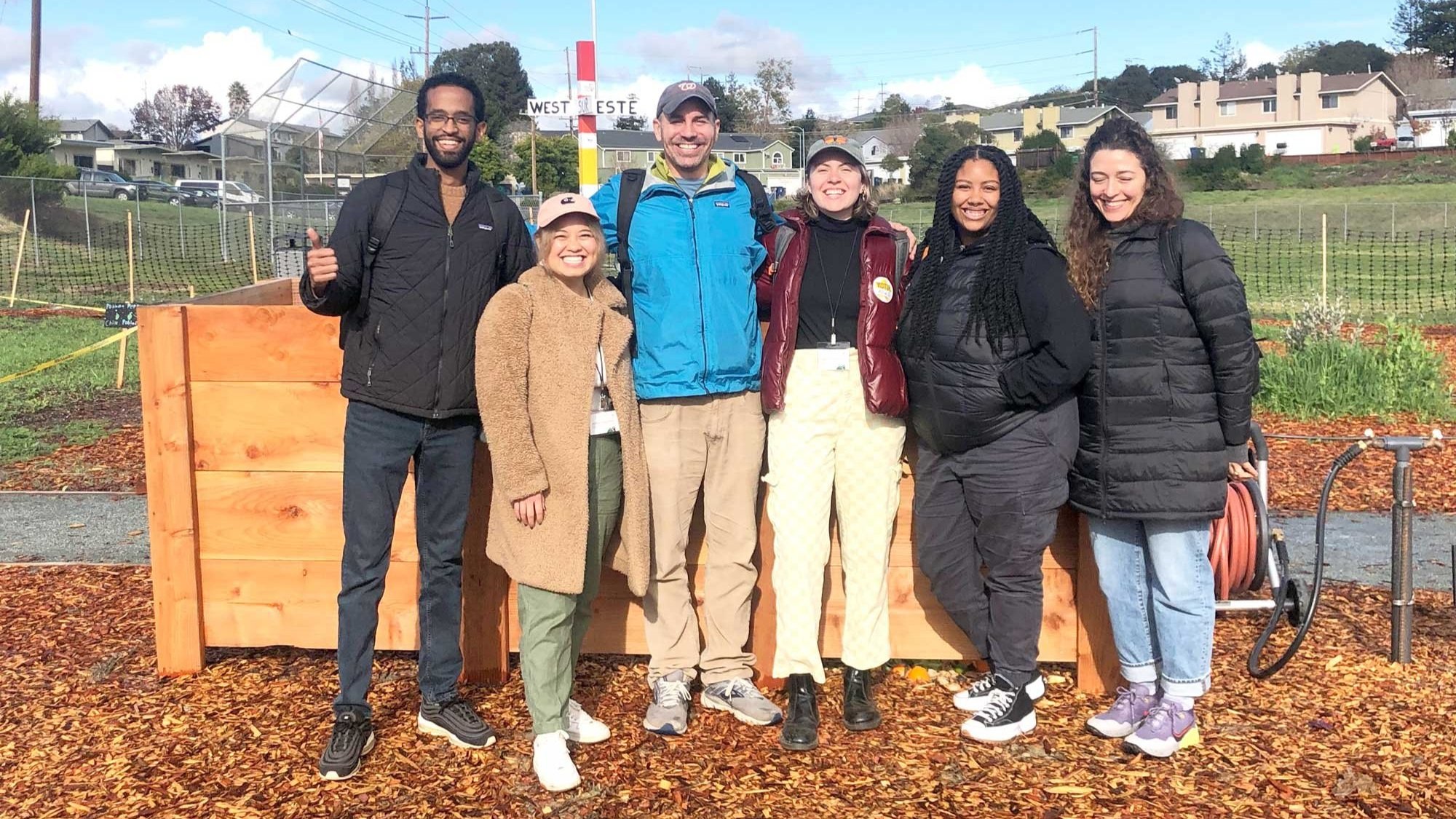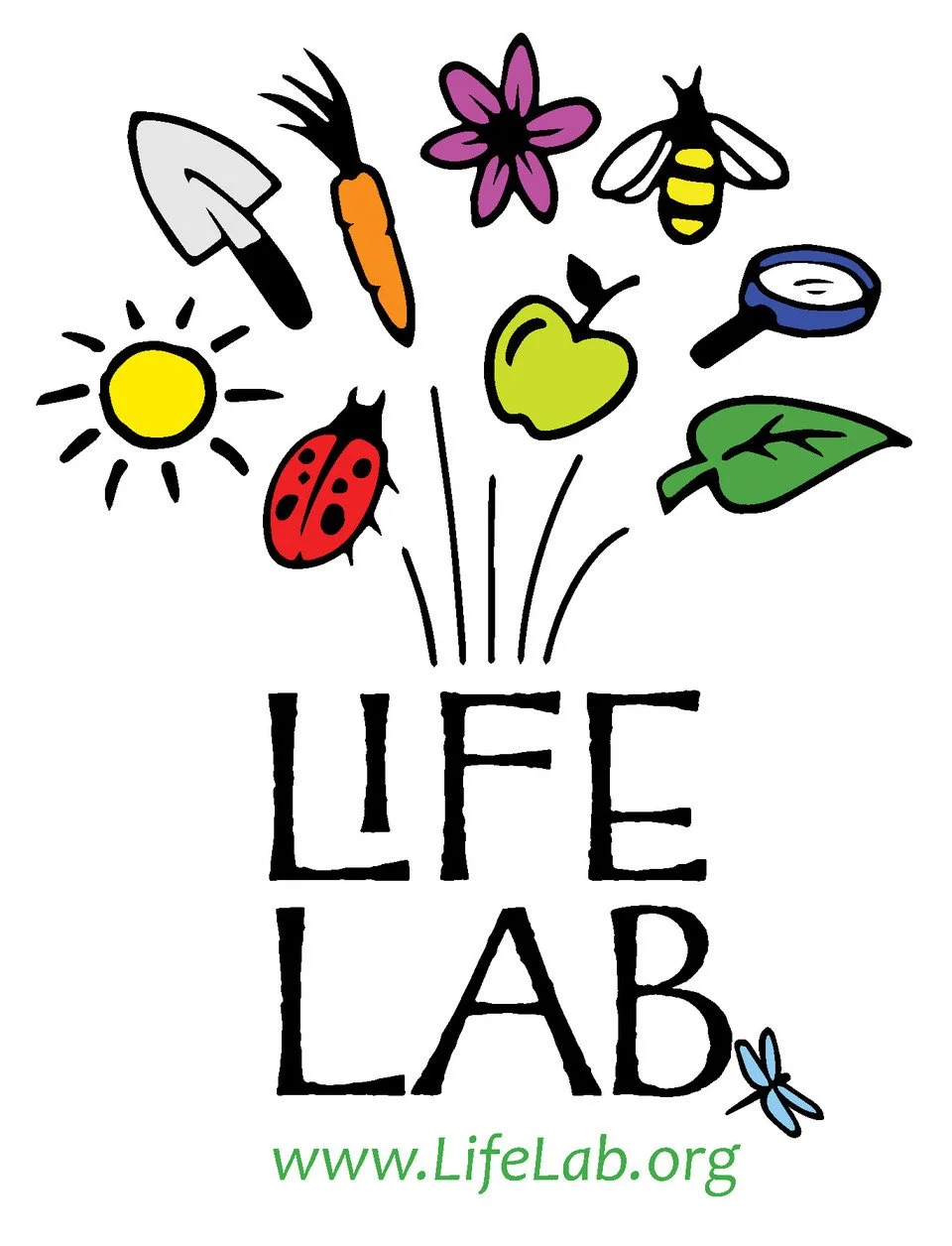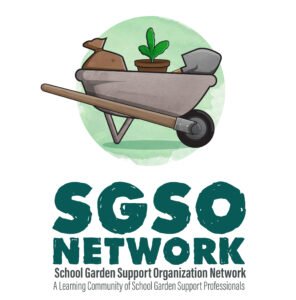What?
Every year, the School Garden Leadership Institute provides an opportunity for school garden professionals from across the country to collaborate, learn from one another, and develop resources to share with a national audience. In this way, we all become able to better support school gardens in our regions, and also advance the national school garden movement.
School Garden Leaders at the 2020 Leadership Institute!
Who Attends School Garden Leadership Institutes
The 2026 cohort will be comprised of up to 20 teams of two. Teams may be individuals from the same organization or individuals from different organizations collaborating on supporting multiple school gardens in the same region or school district.
For 2026, we are particularly seeking teams of two from organizations that:
Support 4 or more school gardens in their district or region
Will be implementing training for garden-based educators in the 2026-2027 school year
Are willing to administer a pre-designed school garden program assessment survey to their partner or district school sites with the purpose of building long-term program capacity through enhancing their student experiences, physical garden sites, fundraising, and/or community involvement.
When
The 2026 Leadership Institute is scheduled for June 22-27, 2026 (arrive Monday 6/22 by 3:00 PM, depart Saturday AM, 6/27)
Where
The 2026 Leadership Institute will take place at the University of California Santa Cruz.
40 minute drive from San Jose Airport (SJC)
1 hour 15 minute drive from San Francisco Airport (SFO).
Lodging will be provided in UCSC campus apartments, with three meals per day served in the university’s dining halls.
Tentative Fee Schedule
Fees include lodging, all meals (minus one dinner on your own), and transportation from SJC or SFO airport to conference center and back to SJC or SFO.
$0 - Fee for individuals from organizations with annual budgets of $0-$250K
$200 - Fee for individuals from organizations with annual budgets of $251K-$500K
$350 - Fee for individuals from organizations with annual budgets of $501K-$750K
$500 - Fee for individuals from organizations with annual budgets of $751K-$1M
$650 - Fee for individuals from organizations with annual budgets over $1M
Why?
School gardens have tremendous lifelong benefits for children. Research has shown that when children participate in a school garden program, they show marked improvement in nutrition; social emotional skills; environmental attitudes; scientific achievement; and attitudes toward learning (www.lifelab.org/resources/school-garden-impacts).
But school garden programs need support in order to unlock their full potential. Without well-trained educators, strong curriculum, and supportive networks, garden programs often become underutilized or even forgotten. With support, however, they thrive, become institutionalized into school cultures, and inspire children for decades.
Regional School Garden Support Organizations (SGSO) have emerged as a key determinant in the success and sustainability of school garden programs across the country. This Institute is designed to provide SGSO leaders with the inspiration and information they need to effectively support school garden programs in their regions, and to share best practices with other SGSOs nationally.
Questions? Contact Kelsey Cerdas kelsey@lifelab.org
Past Leadership Institutes
View highlights and resources from the 2025 Leadership Institute
Great Summary of 2023 Institute from participant Tatiana Gonzalez of the Wylde Center in Atlanta, GA.
2022 See photos from the 2022 Institute of participating organizations and of 2022 Institute activities.
The 2021 Virtual Leadership Institute Created These Promising Practices Documents
Join the School Garden Support Organization Network E-list to to receive future institute announcements and updates on upcoming events or join the SGSO Network Google Group to be part of a national dialogue of school garden support organizations.
Hosted by Life Lab and Whole Kids, a project of Whole Foods Market Foundation, in partnership with the SGSO Network.







